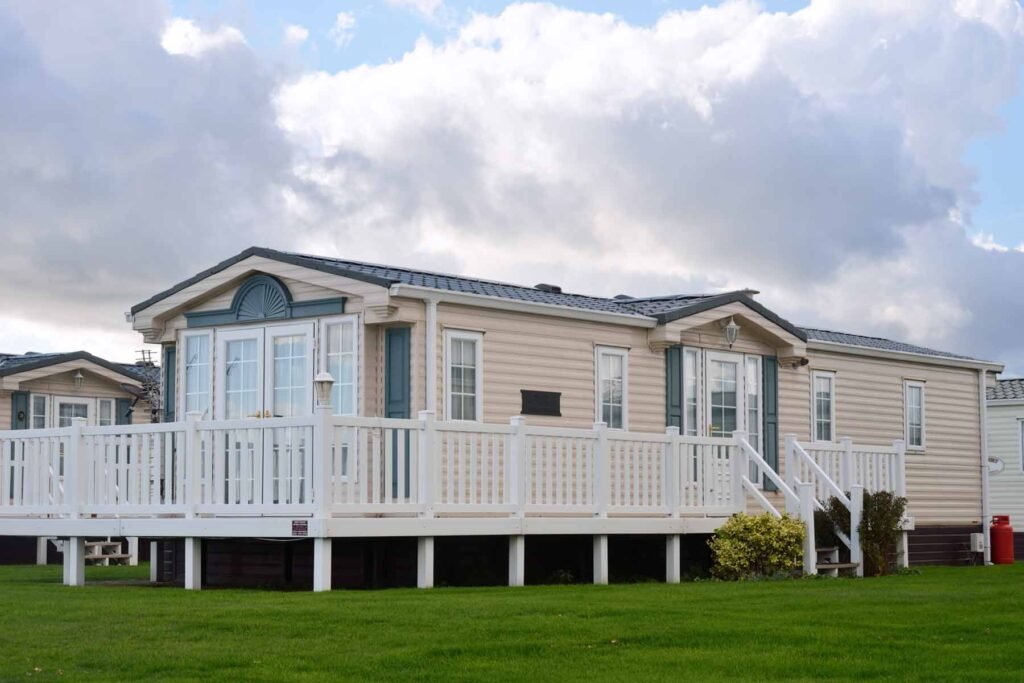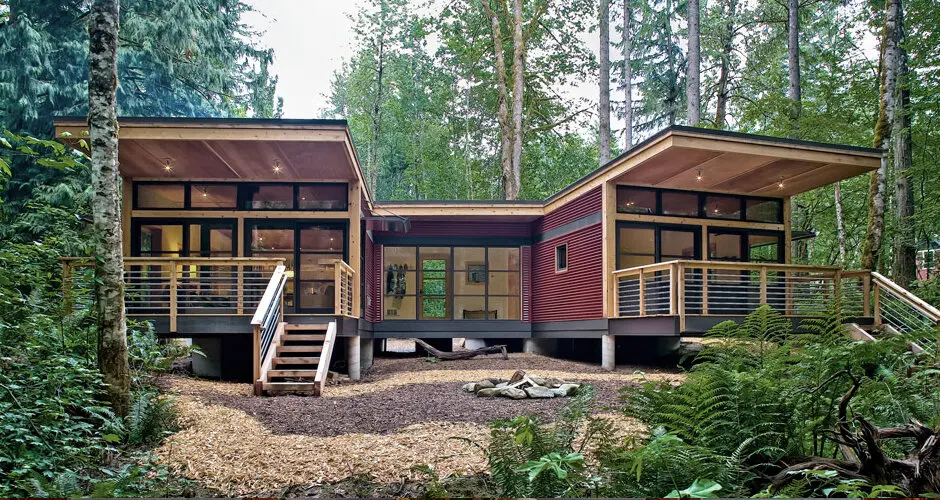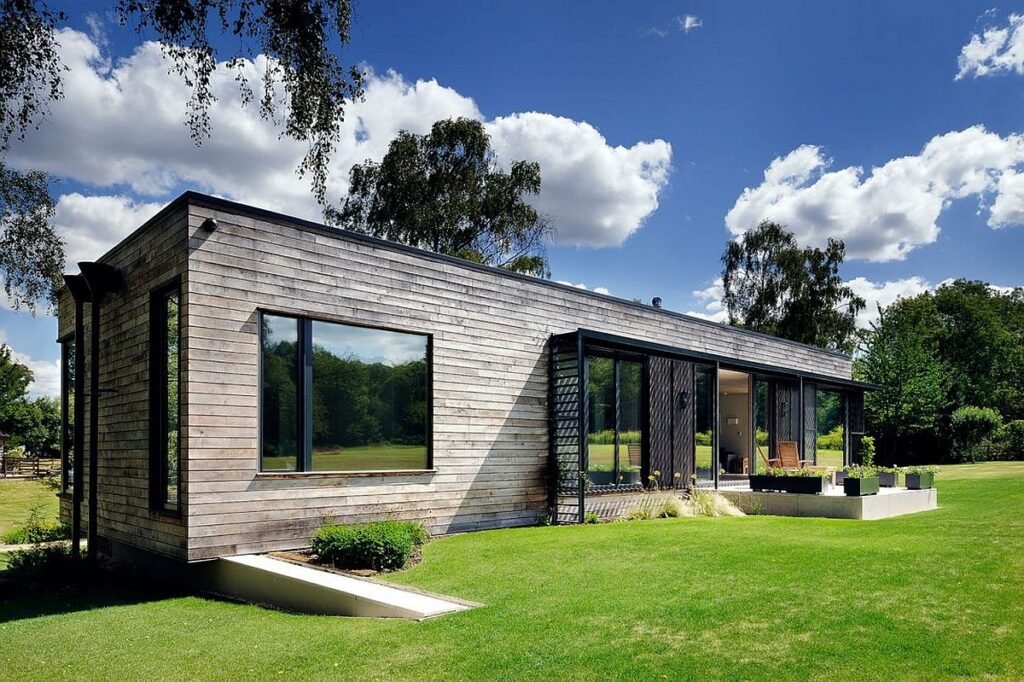Uncategorized
Eco-Friendly Mobile Homes – Sustainable Living Solutions
Table of Contents
Eco-friendly mobile homes represent a significant evolution in manufactured housing, offering sustainable living solutions that combine affordability, energy efficiency, and a reduced environmental footprint. As environmental consciousness grows and the demand for sustainable housing increases, manufacturers are increasingly incorporating green building practices, renewable energy systems, and eco-conscious materials into mobile home designs. This shift challenges traditional perceptions of manufactured housing, positioning it as a viable and attractive option for environmentally responsible homeowners.
The concept of an eco-friendly mobile home extends beyond just energy efficiency; it encompasses a holistic approach to sustainable living. This includes minimizing waste during construction, utilizing recycled and renewable materials, optimizing indoor air quality, conserving water, and integrating smart technologies that reduce resource consumption. The affordability of mobile homes, combined with their potential for significant environmental benefits, makes them an accessible pathway to sustainable homeownership for a broader demographic.
This article will explore the various aspects of eco-friendly mobile homes, detailing the green features and technologies that make them sustainable, the benefits they offer to homeowners and the environment, and what to consider when seeking out these innovative housing solutions. Whether you are a first-time homebuyer, looking to downsize, or simply committed to a greener lifestyle, understanding the advancements in eco-friendly manufactured housing can open up new possibilities for your sustainable future.
Understanding Eco-Friendly Mobile Home Design and Features
Energy Efficiency at the Core
Energy efficiency is a cornerstone of eco-friendly mobile home design, leading to lower utility bills and a reduced carbon footprint. Key features include:
•Superior Insulation: High-performance insulation in walls, floors, and roofs significantly reduces heat loss in winter and heat gain in summer. This often includes advanced materials like spray foam or rigid foam insulation, exceeding standard building codes.
•Energy-Efficient Windows and Doors: Double or triple-pane windows with low-emissivity (Low-E) coatings minimize heat transfer, while well-sealed, insulated doors prevent drafts, contributing to a stable indoor temperature.
•High-Efficiency HVAC Systems: Modern eco-friendly mobile homes often feature ENERGY STAR® certified heating, ventilation, and air conditioning (HVAC) systems, such as heat pumps or geothermal systems, which consume significantly less energy than traditional units.
•LED Lighting: The exclusive use of LED (Light Emitting Diode) lighting throughout the home drastically reduces electricity consumption compared to incandescent or fluorescent bulbs.
•ENERGY STAR® Appliances: Integration of ENERGY STAR® rated refrigerators, dishwashers, washing machines, and water heaters ensures that major appliances operate with maximum energy efficiency.

Renewable Energy Integration
Many eco-friendly mobile homes are designed to incorporate or be easily adapted for renewable energy sources:
•Solar Panels (Photovoltaic Systems): Rooftop solar panels can generate electricity, significantly reducing or even eliminating reliance on the grid. Some homes are
designed as
solar-ready,
•Solar Water Heaters: These systems use solar energy to heat water, further reducing energy consumption for domestic hot water.
•Wind Turbines: In suitable locations, small wind turbines can supplement or provide primary electricity generation.
Sustainable Materials and Construction
Environmentally conscious material selection and construction practices are crucial for truly eco-friendly mobile homes:
•Recycled and Reclaimed Materials: Use of materials like recycled steel, reclaimed wood, recycled denim insulation, or recycled glass countertops reduces demand for virgin resources and minimizes landfill waste.
•Locally Sourced Materials: Sourcing materials from nearby suppliers reduces transportation costs and associated carbon emissions.
•Low-VOC (Volatile Organic Compound) Products: Paints, adhesives, and finishes with low or no VOCs improve indoor air quality by reducing the release of harmful chemicals.
•Durable and Long-Lasting Materials: Choosing materials that withstand the test of time reduces the need for frequent replacements, minimizing waste and resource consumption over the home’s lifespan.
•Efficient Construction Practices: Factory-built construction inherently reduces waste compared to on-site construction due to precise cutting, optimized material use, and recycling programs within the manufacturing facility. Sustainable mobile homes
Water Conservation
Eco-friendly mobile homes integrate features to minimize water usage:
•Low-Flow Fixtures: Toilets, showerheads, and faucets designed to use less water significantly reduce indoor water consumption.
•Water-Efficient Appliances: ENERGY STAR® certified dishwashers and washing machines use less water per cycle.
•Rainwater Harvesting Systems: Collecting and storing rainwater for non-potable uses like irrigation or toilet flushing can drastically reduce reliance on municipal water supplies.
•Greywater Recycling Systems: Treating and reusing water from sinks and showers for irrigation can further conserve water, especially in arid regions.
Indoor Air Quality (IAQ)
Good indoor air quality is vital for health and well-being, and eco-friendly homes prioritize it:
•Advanced Ventilation Systems: Heat Recovery Ventilators (HRVs) or Energy Recovery Ventilators (ERVs) bring in fresh air while recovering energy from outgoing air, ensuring continuous air exchange without significant energy loss.
•Non-Toxic Materials: Avoiding materials that off-gas harmful chemicals (VOCs) ensures a healthier indoor environment.
•Integrated Pest Management: Designing homes to minimize entry points for pests reduces the need for chemical pesticides.
Benefits of Owning an Eco-Friendly Mobile Home
Financial Savings
•Lower Utility Bills: The most immediate and tangible benefit is significantly reduced monthly energy and water costs due to superior efficiency.
•Potential for Rebates and Incentives: Many governments and utility companies offer rebates, tax credits, or incentives for purchasing energy-efficient homes or installing renewable energy systems.
•Increased Resale Value: As environmental awareness grows, eco-friendly homes are becoming more desirable, potentially leading to higher resale values and faster sales.
•Reduced Maintenance Costs: Durable, high-quality materials and efficient systems often translate to fewer repairs and lower long-term maintenance expenses. Green mobile homes
Environmental Impact
•Reduced Carbon Footprint: Lower energy consumption directly translates to fewer greenhouse gas emissions, contributing to climate change mitigation.
•Conservation of Natural Resources: Use of recycled, reclaimed, and locally sourced materials reduces the demand for virgin resources and minimizes the environmental impact of extraction and transportation.
•Less Waste: Efficient factory construction and reduced material consumption during the home’s lifespan contribute to less landfill waste.
•Water Conservation: Reduced water usage helps preserve precious freshwater resources, especially in drought-prone areas.

Health and Comfort
•Improved Indoor Air Quality: Reduced VOCs and enhanced ventilation create a healthier living environment, beneficial for individuals with allergies, asthma, or chemical sensitivities.
•Consistent Indoor Temperatures: Superior insulation and efficient HVAC systems provide more stable and comfortable indoor temperatures, eliminating drafts and hot/cold spots.
•Reduced Noise Pollution: Better insulation also contributes to a quieter indoor environment, shielding residents from external noise.
•Connection to Nature: Many eco-friendly designs emphasize natural light and views, fostering a sense of well-being and connection to the outdoors.
Finding and Evaluating Eco-Friendly Mobile Homes
Certifications and Standards
When looking for an eco-friendly mobile home, certifications can provide assurance of sustainable practices:
•ENERGY STAR®: This EPA-backed program certifies homes that meet strict energy efficiency guidelines, ensuring lower utility bills and a smaller carbon footprint.
•LEED (Leadership in Energy and Environmental Design): While more common for larger buildings, some manufactured homes may pursue LEED certification, indicating a comprehensive approach to green building.
•Green Globes: Another green building rating system that assesses environmental performance throughout a building’s lifecycle.
•National Green Building Standard (NGBS): Developed by the National Association of Home Builders (NAHB), this standard provides a framework for green residential construction.
Key Questions to Ask Manufacturers and Dealers
•What insulation R-values are used in the walls, floors, and roof? Higher R-values indicate better insulation.
•Are ENERGY STAR® certified windows and appliances standard? If not, are they available as upgrades?
•What type of HVAC system is installed, and what is its efficiency rating? Look for high SEER (Seasonal Energy Efficiency Ratio) and HSPF (Heating Seasonal Performance Factor) ratings.
•Are there options for solar panel installation or solar readiness?
•What sustainable materials are used in construction (e.g., recycled content, low-VOC products, sustainably harvested wood)?
•What water-saving fixtures and appliances are included?
•What waste reduction and recycling practices are implemented during manufacturing?
•Are there any third-party green building certifications for the home or manufacturer?
Site Considerations for Eco-Friendly Living
Even the most eco-friendly home can be undermined by an unsustainable site. Consider:
•Orientation: Proper home orientation can maximize passive solar heating in winter and minimize solar gain in summer, reducing energy needs.
•Landscaping: Native, drought-tolerant landscaping reduces water consumption for irrigation. Planting deciduous trees can provide summer shade and winter sun.
•Local Climate: Design choices should be adapted to the local climate for optimal energy performance.
•Access to Public Transportation: Proximity to public transport can reduce reliance on personal vehicles, further lowering carbon emissions.
The Future of Eco-Friendly Mobile Homes
The trajectory for eco-friendly mobile homes is one of continuous innovation and increasing market integration. As climate change concerns intensify and energy costs fluctuate, the demand for sustainable housing will only grow. Manufacturers are investing in research and development to push the boundaries of efficiency and environmental performance.
We can anticipate more widespread adoption of net-zero energy mobile homes, which produce as much energy as they consume annually. Advancements in smart home technology will further optimize energy usage, allowing homeowners to monitor and control their consumption with greater precision. The use of advanced composite materials, modular construction techniques that minimize waste, and even 3D-printed components may become more common, further enhancing the sustainability of manufactured housing.
Furthermore, as regulations evolve to promote greener building practices, eco-friendly features will likely become standard rather than optional upgrades. This will make sustainable living more accessible to a broader population, cementing the role of eco-friendly mobile homes as a vital component of a sustainable future.
Frequently Asked Questions About Eco-Friendly Mobile Homes
Are eco-friendly mobile homes more expensive?
Initially, eco-friendly mobile homes may have a slightly higher upfront cost due to premium materials and technologies. However, these costs are often offset by significant long-term savings on utility bills, potential rebates, and increased resale value, making them a wise investment.
How long do eco-friendly mobile homes last?
With proper maintenance, eco-friendly mobile homes are built to last as long as traditional site-built homes, typically 30-50 years or more. The use of durable, high-quality materials often contributes to their longevity.
Can I put solar panels on any mobile home?
While most mobile homes can be retrofitted with solar panels, it’s easier and more efficient if the home is designed as
solar-ready or has a strong roof structure. Consulting with a solar professional is recommended.
Do eco-friendly mobile homes require special maintenance?
Generally, no. Maintenance is similar to any other home, though some specialized systems like rainwater harvesting or solar panels may require periodic checks. The durable materials often lead to less frequent maintenance.
Are eco-friendly mobile homes eligible for green building certifications?
Yes, many eco-friendly mobile homes can qualify for certifications like ENERGY STAR®, LEED, or NGBS, depending on their design, construction, and the specific features incorporated.
Discover stunning 4 bedroom mobile homes for rent with plenty of space.
See what’s available in mobile homes for rent under $500.
Looking to relocate? We specialize in moving mobile homes.
Browse top modular homes designed for comfort and durability.
Conclusion: Your Path to a Greener Home
Eco-friendly mobile homes offer a compelling blend of affordability, sustainability, and modern living. By integrating advanced energy-efficient technologies, sustainable materials, and thoughtful design, these homes provide a pathway to a reduced environmental footprint and significant long-term financial savings.
As the world moves towards a more sustainable future, eco-friendly manufactured housing stands out as an accessible and practical solution for individuals and families committed to living greener lives. Embracing an eco-friendly mobile home is not just a housing choice; it’s a commitment to a more responsible and harmonious relationship with our planet.
To explore eco-friendly mobile home options and embrace sustainable living, contact TrailerHousesForRent.com at (657) 224-3173 or browse our selection of green manufactured homes.

